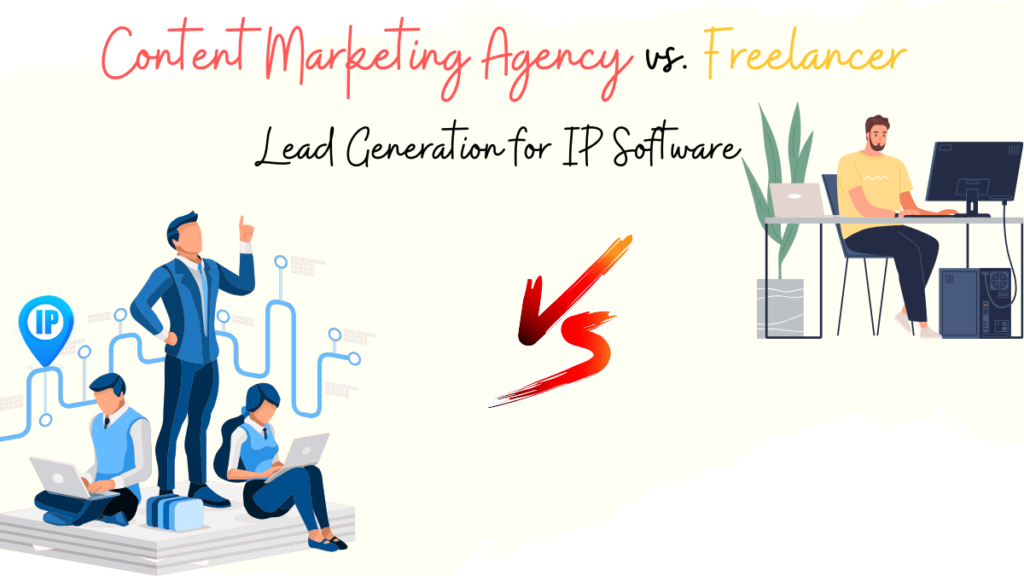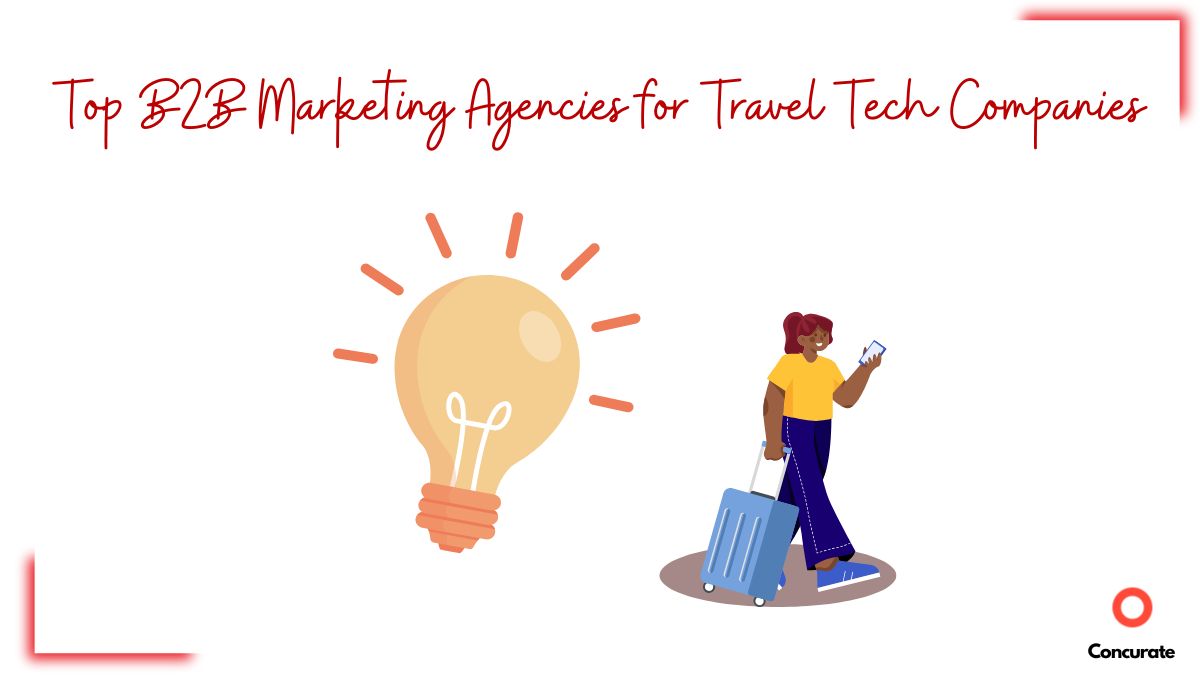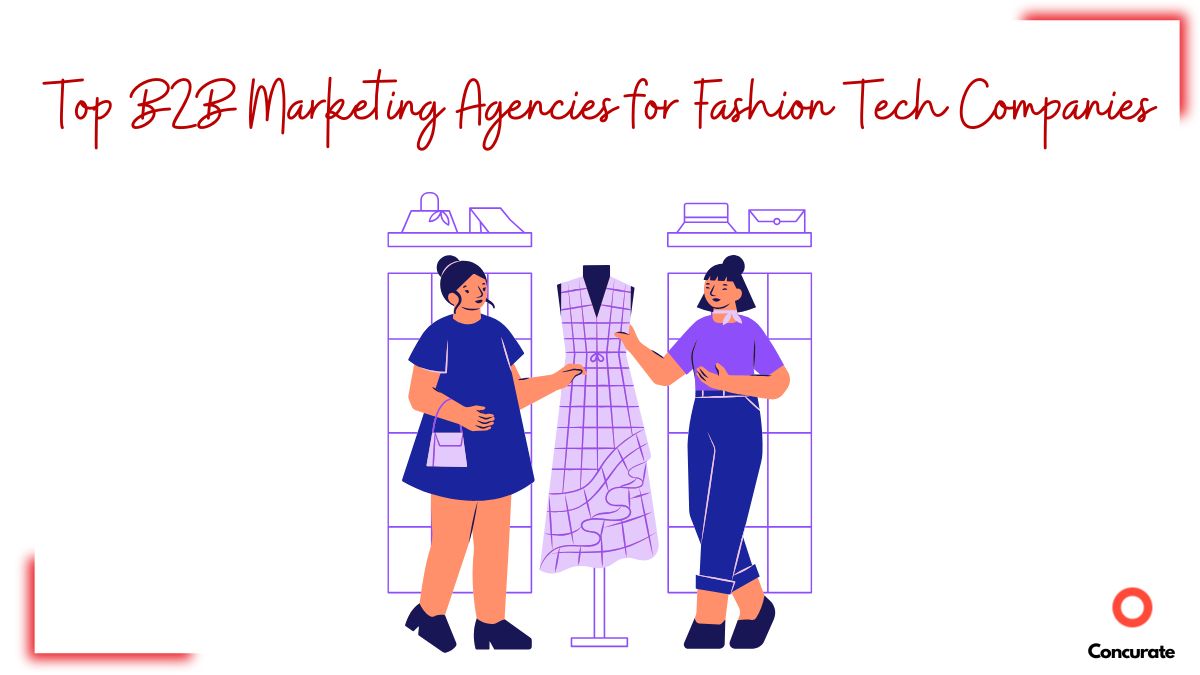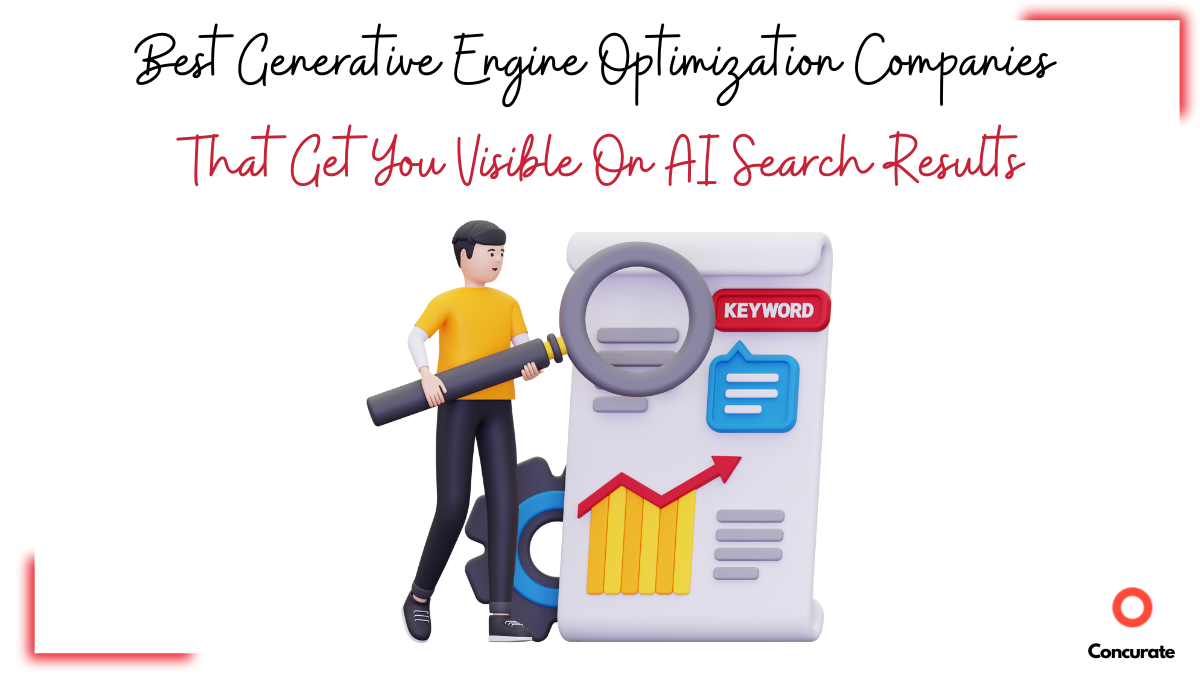Think about it: a $2.77 return for every dollar you invest in content marketing.
That’s a 177% profit for any business!
But in the IP software world, where attention to detail is a must, to meet this level of profitability with content marketing, do you only need a marketing partner who is just good with words? Certainly not.
You need a partner who understands the intricacies of patent laws and the specifics of your technology.
After all, in the competitive IP industry, your software is not just a product but a solution that can drive your customers’ innovation. Effective marketing is crucial to communicate this value to your target audience.
But who should handle your marketing to ensure your message hits home? A specialized content marketing agency or a freelancer? The right choice could make all the difference.
Content Marketing Agencies v. Freelancers for IP Software Marketing | Head-to-Head
Let’s explore the 14 major factors to understand key differences between the two and discover why partnering with a content marketing agency outweighs the other option and is optimal for your IP business.
#1. Resources
Content Marketing Agency: A content marketing agency provides a comprehensive range of services, including content creation, SEO, graphic design, video production, and analytics. Each aspect of your strategy is handled by specialists, ensuring a cohesive and high-quality output.
Agencies utilize advanced tools and applications throughout the content creation, enhancing quality and effectiveness. They also access premium research databases like ResearchGate content aggregators like McKinsey, NYTimes, and Foresters, alongside advanced marketing platforms for content management and automation.
Freelancer: While freelancers can be highly talented, they often lack an agency’s broad expertise and resources. Excelling in one or two areas, such as writing or graphic design, freelancers may need to outsource tasks or spend significant time outside their expertise, leading to potential inconsistencies and delays.
Their limited access to research databases and marketing tools is another drawback.
#2. Skills and Value Addition
Content Marketing Agency: Agencies bring a wealth of skills from diverse team members, perfect for specialized fields like IP software marketing. Hiring an agency gives you access to experienced writers, designers, marketing specialists, and technical experts, ensuring your content is compelling and accurate. For example, a patent attorney can explain a technical breakthrough, but a team of experts can make it engaging and impactful.
Agencies excel in creating comprehensive strategies, from in-depth whitepapers to visually engaging infographics, ensuring all content aligns and enhances effectiveness.
Oh, by the way! Did you know that businesses that prioritize blogging see a 13x increase in ROI?
Freelancer: Freelancers offer specialized skills, such as technical writing or graphic design, tailored to IP software marketing. However, their value is often limited to their expertise. Without a broader team, they may struggle to integrate various marketing elements cohesively. A freelancer might produce a technically sound whitepaper but lack the marketing insight to promote it effectively, hindering overall impact.
#3. Voice
Content Marketing Agency: Agencies excel at maintaining a consistent brand voice across all content. With brand managers and content editors overseeing the process, every piece aligns with your brand’s tone and messaging. This consistency builds recognition and trust, which is crucial in a competitive market.
Fun Fact: Consistent brand presentation can increase revenue by up to 23%!
Freelancer: Freelancers can capture your brand voice, but maintaining consistency is challenging, especially with multiple clients and projects. Without a dedicated editorial team, subtle shifts in tone might dilute your brand’s impact. Plus, there’s no guarantee the same freelancer will always be available, risking inconsistency.
#4. Timelines
Content Marketing Agency: Agencies are built to meet tight deadlines and handle large workloads efficiently. This is because they have a team of specialists who can divide the work and collaborate effectively, ensuring that urgent projects are completed on time without sacrificing quality. This is crucial for businesses in fast-paced, niche markets like IP software, where timely content can significantly impact market positioning and customer engagement.
Freelancer: Freelancers often have limited capacity and may struggle with tight deadlines, especially when juggling multiple projects. Personal commitments or unexpected events can cause delays, potentially hindering your marketing efforts. In the rapidly evolving IP software industry, these delays can lead to missed opportunities and decreased competitiveness.
#5. Performance Measure
Content Marketing Agency: Agencies leverage advanced analytics tools such as Google Analytics, SEMrush, HubSpot, and other CRMs to track leads and key performance indicators (KPIs). This helps capture leads and identify Key Performance Indicators to help tweak your marketing strategy. They provide detailed reports on metrics like engagement rates, lead conversions, and ROI, enabling continuous optimization and alignment with business goals. These tools allow agencies to gather and analyze data more effectively, leading to more informed and data-driven marketing decisions.
Freelancer: Freelancers may lack access to sophisticated, subscription-only/paid analytics tools and expertise, leading to less detailed and actionable performance measurements. This can hinder accurate assessment of content marketing campaign impact and informed decision-making for future strategies.
#6. Proven Results
Content Marketing Agency: Agencies have a track record of successful campaigns backed by case studies and client testimonials. They demonstrate tangible results like increased website traffic, higher lead generation, and improved brand visibility. For IP software companies, this reliability ensures your marketing objectives are met effectively.
Freelancer: Freelancers may have fewer examples of success, making it harder to gauge their reliability. Limited case studies and client experiences can make predicting outcomes challenging, which is crucial, especially for companies like yours aiming for precise and impactful marketing.
#7. Quality and Scalability
Content Marketing Agency: Agencies ensure consistently high-quality content through rigorous editorial processes and experienced professionals. Agencies create well-researched, extensively linked articles using a thorough quality control checklist. Agencies can quickly scale efforts to match your business growth, ensuring your marketing evolves with your company.
Freelancer: Freelancers can produce high-quality work but may struggle to maintain consistency as they take on more projects. Scaling up efforts can lead to overextension and a decline in quality, limiting the growth of your content marketing efforts.
#8. Multiplicity of Projects
Content Marketing Agency: Agencies are adept at managing multiple projects simultaneously without compromising quality or efficiency. They have robust project management systems and a team-based approach that allows them to handle diverse and concurrent marketing campaigns. This ensures that each project receives the attention needed to succeed, without overburdening any individual team member. This is particularly beneficial for businesses with multiple marketing initiatives or those in need of a comprehensive marketing strategy.
Freelancer: Freelancers may find it challenging to manage multiple projects simultaneously, especially if they are complex or require different skill sets. This juggling act can lead to delays and decreased focus on individual projects, affecting the overall quality and timeliness of the work delivered.
#9. Marketing Strategy
Content Marketing Agency: Agencies provide a strategic approach to content marketing by integrating various channels (such as email, SMS, social media, and websites) into a cohesive strategy that drives business from all sources. They conduct thorough market research, audience analysis, and competitive benchmarking to ensure your content resonates with your target audience and delivers measurable results across all platforms. Crafting effective lead magnets is just one aspect of a marketing strategy that needs to be seamlessly integrated.
Freelancer: Freelancers might excel at executing specific tasks within a marketing strategy but often lack the broader strategic oversight that an agency provides. Without a comprehensive plan, the effectiveness of individual content pieces can be diminished, leading to fragmented and less impactful marketing efforts.
#10. Client Effort
Content Marketing Agency: Agencies handle planning, execution, and management, reducing the need for extensive client reviews. They provide regular updates, informing you about progress and allowing you to focus on core business activities.
Freelancer: Working with a freelancer often demands more client involvement, including detailed briefs and frequent check-ins. This can divert time and resources from other essential business functions.
#11. Content Resonance
Content Marketing Agency: Agencies conduct in-depth market research and audience analysis to ensure that your content resonates with your target audience. They employ techniques like A/B Testing, heat mapping, analytics tools, content audits, etc., to refine content based on audience feedback and performance data, leading to more engaging and effective marketing materials.
Freelancer: While freelancers can create content that resonates with your audience, their ability to conduct extensive research and analysis is often limited. Without access to advanced tools and resources, they may rely on less comprehensive methods, potentially resulting in less finely tuned content to your audience’s preferences and needs.
#12. Cost
Content Marketing Agency: Agencies might come with a higher upfront cost, but they offer a comprehensive suite of services that provide significant value. This investment is often justified by the quality of work, strategic insights, and measurable results they deliver.
You must agree that the scalability and breadth of services can lead to cost efficiencies in the long run.
Freelancer: Freelancers are undoubtedly the most cost-effective option, especially for specific tasks or short-term projects. However, the total cost can increase if additional resources or project corrections and revisions are needed. This can make the overall expenditure comparable to or even higher than hiring an agency over time.
#13. Return on Investment (ROI)
Content Marketing Agency: Agencies often deliver higher ROI through their comprehensive services and expert teams. They use advanced analytics to optimize campaigns, ensuring efficient resource allocation. This leads to higher engagement rates, qualified leads, and increased sales, especially for IP software companies. Although initial costs may be higher, the long-term benefits and measurable results justify the investment.
Freelancer: Freelancers offer lower upfront costs but can have variable ROI. Their effectiveness depends on their skills and integration into your marketing strategy. Limited access to advanced tools and resources can hinder sustained results. Inconsistent quality or expertise gaps may lead to missed opportunities, making the overall ROI less predictable compared to an agency.
#14. Systems and Processes
Content Marketing Agency: Agencies have well-established systems and processes to streamline content marketing, from strategy and creation to distribution and tracking. They use advanced project management tools to ensure timely delivery and maintain quality. This structured approach ensures consistent communication and alignment with your marketing strategy, which is crucial for IP software marketing, where accuracy and consistency are critical.
Freelancer: Freelancers work independently and may lack the sophisticated systems of agencies. Their processes can vary, leading to potential challenges in project management, especially with changing scopes or multiple freelancers. Freelancers often use more straightforward tools, which can result in delays or inconsistencies. For IP software marketing, this lack of formalized systems can hinder the seamless execution and alignment of content strategy.
In essence, when you work with a content marketing agency, you can expect high levels of organization and professionalism. Your project remains unaffected by team members being sick or on vacation, as there is always a suitable replacement available to handle the work. In contrast, a freelancer’s absence, even for a vacation, can put your project on hold.
For a quick recap, the table below outlines nearly all key differences between a content marketing agency and a freelancer at a glance. Let’s take a look!
| Content Marketing Agency | Freelancer | |
|---|---|---|
| Resources | Large team with diverse expertise | With limited resources, often a single person |
| Skills and Value Addition | Wide range of skills, specialization in various domains | Broad skills but may lack depth in some areas |
| Voice | Consistent brand voice across all content | Personalized and flexible voice |
| Timelines | Typically longer due to process complexity | Shorter timelines, more flexible |
| Performance Measure | Standardized metrics and KPIs | Varies greatly, often informal |
| Proven Results | Extensive portfolio with documented case studies | Portfolio varies and may lack formal documentation |
| Quality and Scalability | High quality with the ability to scale quickly | Quality may vary, and scalability is limited |
| Multiplicity of Projects | Able to handle multiple projects simultaneously | Limited to the freelancer’s capacity |
| Marketing Strategy | Comprehensive, often includes SEO, analytics | Basic, often reliant on the client’s direction |
| Client Effort | Minimal client effort once briefed | Higher client involvement is needed |
| Content Resonance | Content aligns with the overall marketing strategy | Content may be more tailored to specific needs |
| Cost | Higher cost due to overheads | Lower cost, fewer overheads |
| Return on Investment (ROI) | Potentially higher ROI due to comprehensive strategy | ROI varies depending on the freelancer’s skill and strategy |
| Systems and Processes | Well-established systems and processes | Flexible but less formalized processes |
The Bottom Line – Find a Partner Who Creates Content That Sells
The ultimate goal of content marketing is business, not just traffic. We at Concurate pride ourselves on creating content that helps you sell. We insist you don’t take our word for it. But take our clients’ 🙂
We understand that content marketing is not a one-size-fits-all approach. We work on a strategy tailored to your business’s current state and growth trajectory.
Let’s share an inside story with you, shall we?
For a client specializing in helping companies to overcome 101 and 102 rejections at the USPTO, we devised a strategy wherein we studied patent examiners and wrote about what worked for which examiner and what didn’t. Not only did their posts begin to rank higher on searches, but they also became a go-to reference point before submitting patent applications.
Over the years, we’ve worked with many IP software companies and developed some expertise in the area. We believe that understanding the product is the most critical aspect of building a marketing strategy, which is paramount with IP software management tools.
We work closely with every client before we chart a marketing course for them.
Interestingly, brainstorming with one of our IP clients led us to create a lead magnet in the form of an Idea Disclosure Form for them, which doubled the leads to their website in 16 months.
We endeavor to carefully craft content that is click-worthy and ensures conversion. With a team of dedicated, power-packed (mostly) women, we have our priorities at Concurate set straight. And those priorities are you and your business.
If that thought excites you, get in touch with us today, and let’s create some sellable magic!
FAQs
- How do I know I am choosing a good freelancer? Where do I look?
Choosing a good freelancer involves defining your specific needs, reviewing their previous work, reading reviews, conducting interviews, and starting with a small project to test their abilities. To find the right freelancer, consider looking on popular freelance platforms like Upwork, Fiverr, and Freelancer.com. You can also explore professional networks such as LinkedIn, seek referrals from trusted contacts, or check industry-specific job boards.
- What is better than a freelancer?
In-house employees and agencies can be better than freelancers. In-house employees offer consistency, availability, and seamless team collaboration. Agencies provide full-service offerings, a team of specialists, and scalability for larger projects. But the choice should depend on your project’s specific needs, budget, and complexity.
- What is a content marketing agency?
A content marketing agency is a specialized firm that creates and manages content strategies to help businesses attract, engage, and retain customers. They produce various types of content, such as blog posts, social media updates, videos, and infographics, aimed at building brand awareness, driving traffic, and generating leads. These agencies offer services including content creation, SEO, social media management, and analytics to ensure that the content aligns with the client’s marketing goals and reaches the target audience effectively.
- What does Concurate’s quality control checklist contain?
Concurate’s quality control checklist contains several key points to ensure the delivery of high-quality content:
- Editorial Accuracy: Ensures grammatical and stylistic correctness.
- Factual Verification: Confirms accuracy of all data and facts.
- Content Coherence: Reviews logical flow and structure.
- Plagiarism Check: Detects and resolves any plagiarism issues.
- SEO Optimization: Implements SEO best practices.
- Compliance Check: Adheres to client and industry guidelines.
- Audience Engagement: Evaluates potential to engage viewers.
To understand the full scope and details of our quality control processes, we encourage you to schedule a call with us to discuss how we can tailor our expertise to your content needs.







